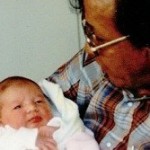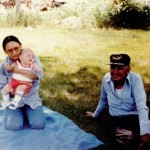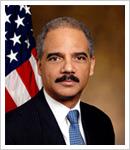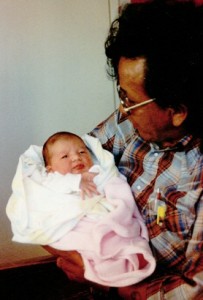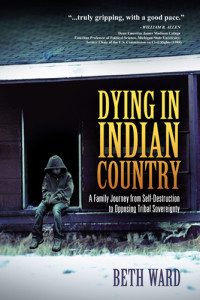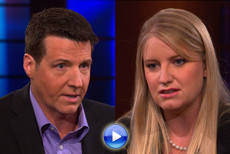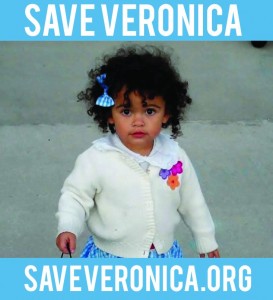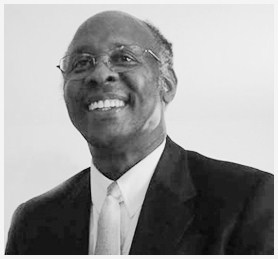– YOU CAN TURN THIS AROUND:
You have a good heart and have always meant well, trying to do what you thought was right and help others where you can, but somewhere along the line, you got caught in things you had been warned about.
These things didn’t seem dangerous initially. It looked fun, everyone else is doing it, and you wanted to be part of what was going on. That’s understandable. You might even have had some deep pains in your heart that you wanted to soothe, hurts you yearned to forget. The things you chose to do helped you forget pain. That’s understandable as well.
So, when some of your elders had warn you to stay away from it, it wasn’t what you wanted to hear. That said, you pushed them away and told yourself they were just old and judgmental.
Even that is understandable. Many of your elders felt the same way when young. But they learned the hard way what can happen, and wanted to spare you from having to learn the same way. Addiction is real – and eventually, it will destroy you and everything you love. Your elders wanted to help you avoid that.
Now you have young children, and someone has threatened to call CPS on you.
You CAN turn this around – but you need to start accepting help right away and listen to the advice of those who really do care and want the best for you and your children.
CPS is not necessarily the people who can or will help. Getting advice from older people is best – grandparents who have finished raising children to adulthood. It’s not just theory for them; they have lived it.
Find more than one older mentor, as not any one person has all the answers. Find mentors that are
• Living clean
• Have been doing so for quite awhile
• Have a strong relationship with God.
• Can see your heart and are willing to gently, patiently teach you in the ways of God.
Humble yourself – listen, trust, and do what they suggest. Do this NOW – TODAY – before someone calls CPS and gets them involved.
.
– WHY YOU DO NOT WANT CPS INVOLVED:
You do NOT want CPS in your life – most particularly if you have any Native American ancestry. Depending on the tribe, you and your child could be put into a situation you would never have imagined. It is not so much that all CPS workers are all bad – it is because of laws forcing them to hand your children over to tribal governments.
You might have been told this is a good thing – that this will protect your rights to your children and keep them in your home longer. This might be true to an extent. But the Indian Child Welfare Act was not written to protect children or parents. It was written to protect tribal governments and tribal sovereignty.
Therefore, you could be helped to keep your child longer – but only if it pleases the tribal government.
We have seen many cases where children have been removed from family members and given to other people because it pleased tribal government to do so. Current BIA guidelines say no one can question the placement decision of a tribal court because questioning a placement undermines the tribal court.
We have seen children
1. Taken from one extended relative and given to another because someone on the council didn’t like the original caretaker.
2. Taken from non-tribal parents and given to enrolled parents despite known drug and physical abuse.
3. Taken from grandparents because the grandparents were non-Indian.
4. Taken from maternal family members and given to paternal family members when a payment was coming out and the paternal family wanted the children’s checks.
The tribal government has complete and final say. NOT YOU.
There is no guarantee things will be done the way you envision – being able to keep your child AND your current lifestyle. Those who do get their way and keep their children despite continued drug, alcohol and even child abuse are frequently related to someone in tribal government and express complete agreement with tribal government’s agenda.
We have seen a 13-yr-old girl left in the home of a non-relative tribal member, with a documented history of sexual abuse, despite the fact that her non-tribal birth father wanted her, had a clean record, was fighting to try to get her back, and numerous reports of the tribal member’s sexual abuse record had been made to tribal and federal officials, including the BIA. To this date, the father has still not been able to get his daughter back.
We have seen two fathers in the Fargo area fight for over a year to get their daughters back from the Cheyenne River reservation. They have been unable to do so, despite court orders from the Fargo court.
But according to the new BIA guidelines, no one can question the placement of a tribal court.
READ about abuse of Native American children under the watchful eye of tribal and federal government – read ACF Regional Director Tom Sullivan’s 29-page Whistleblower report – https://caicw.org/wp-content/uploads/2015/05/Thomas-F-Sullivan-WB-April-2015.pdf
.
– WHY THEY ARE ABLE TO DO THIS:
I know it seems unbelievable, right? How could things like this be happening under the eye of federal government?
Our Government is currently protecting tribal sovereignty at all costs. Literally – at all cost.
According to the last two U.S. censuses, 75% of tribal members do not live in Indian Country. Many parents have purposefully taken their children and left Indian Country due to rampant crime and tribal government corruption on many reservations.
With a declining population, tribal governments have been losing money (federal money is tied to U.S. census numbers and tribal rolls). So they have pushed federal government to force children back into the reservation system.
They could not push Congressmen to do this by telling them tribal members are taking their families and leaving. Congress would have recognized it as a freedom and a right. So they have sold the American public on a false narrative – that evil “white” social agencies are “stealing” the children.
FAR more children leave Indian Country in the company of their parents than have ever left through social agencies.
But Congress bought the story and in 1978, passed the Indian Child Welfare Act.
Still – it hasn’t helped. With so much un-auditable money available from federal government, not to mention lucrative casino dollars, crime and tribal corruption has increased, and the numbers of tribal members living on the reservations continued to decline.
After a Supreme Court case in 2013 ruled in favor of the rights of a non-tribal birth mother, tribal governments were enraged. They felt their power threatened. They vowed to “fix” the “loophole” allowing an unwed, non-tribal birth mother to make her own decisions, and said they would find a way to strengthen the ICWA.
The Attorney General for the Cherokee Nation said they would not go through Congress to do it, though. She said that if they did that, other organizations, (such as ours) would try to get their two-cents in. She is right, of course. We would most definitely stand up for the factual rights of children and families. But they have more power and money than we do, so they went to the White House instead to “fix” the “loophole” of parental rights.
On December 3, 2014, U.S Attorney General Eric Holder vowed to give permanent jurisdiction of multi-racial children across the nation to Tribal Governments.
In reference to the Indian Child Welfare Act, he stated,
…“We are partnering with the Departments of the Interior and Health and Human Services to make sure that all the tools available to the federal government are used to promote compliance with this important law.”
And
“… because of the foundation we’ve built – no matter who sits in the Oval Office, or who serves as Attorney General of the United States, America’s renewed and reinforced commitment to upholding these promises will be unwavering and unchangeable; powerful and permanent.”
Can you avoid tribal government taking over jurisdiction of your child once CPS is called? It is very hard.
The new guidelines state:
1. It doesn’t matter if the child lives on or off the reservation, or has EVER been connected to Indian Country.
2. There is no need for a certain blood quantum. Tribal governments have complete say over whether a child is a member and subject to ICWA.
3. Courts do NOT have to entertain “Best Interest” arguments because Congress has already decided that the child’s best interest is under the ICWA. Any other discussion of “best interest” is irrelevant.
4. EVERY child custody case MUST be vetted to see if it is ICWA, because children who are just 1% heritage might not look Indian – so courts are required to question the heritage of EVERY child.
5. If there is any question that a child is Indian – he is to be treated as such until proven otherwise. The best interest of the child in relation to permanency is irrelevant. (How does one explain this to a child – especially when it is found later that this child was not eligible for membership? Why are the child’s rights irrelevant?)
6. No one is to question the placement decision of tribal court, because pointing out problems – for example, that a certain home has a history of child abuse – undermines the authority of tribal court.
(Again, please note Tom Sullivan’s report and the justified reason some placements needed to be questioned, but weren’t. Laurynn Whiteshield, (3 yrs. old) murdered a month after placement under the watchful eye of U.S. Attorney Tim Purdon and the BIA at the Spirit Lake Reservation, is just one of many examples.)
YOU SEE – the ICWA is NOT about parental rights. These rules are clearly written to thwart efforts by parents to protect children from corrupt tribal governments. It is NOT about protecting families. If you had any question before this, read the new BIA guidelines and proposed rules in full on your own. The new rules settle all doubt.
.
– BOTTOM LINE:
• Some tribal governments are reticent to admit they don’t have enough safe homes to place children in, and not wanting to place the children off the reservation, they have placed children in questionable and even dangerous homes.
• Abuses are rampant on some reservations because the U.S. Government has set up a system that allows extensive abuse to occur unchecked and without repercussion.
• It appears much more important to some in federal government and tribal government to protect tribal sovereignty first and foremost.
According to the BIA, the only “best interest” of importance is keeping the child with the tribe. The BIA rules repeat that Congress has “a presumption that ICWA’s placement preferences are in the best interests of Indian children; therefore, an independent analysis of “best interest” would undermine Congress’s findings.”
These BIA rules reiterate a prejudicial assumption that everyone with any tribal heritage has exactly the same feelings, thoughts and needs. It prejudicially assumes it is always in the best interest of a child to be under the jurisdiction of tribal government, even if parents and grandparents have chosen and raised them in a different environment with different worldview.
Many of us – birth parents and grandparents of children who could be affected by these rules, do not want corrupt tribal governments interfering with our families or endangering our children and grandchildren.
Neither Congress nor tribal governments should be mandating political affiliations for our children.
Do not lose your child. Before CPS is called – get help from trusted mentors. Today.
~~~~~~~~~~~~
Addendum:
According to former Montana State legislator, Rick Jore:
“[A Pastor once] asked me “Well Rick, what do we owe the Indians?” My response: “We owe them the same thing we owe everybody…the Truth.”
“It is a disservice to Indian people to avoid the entirety of Truth, which is necessary for discipleship, so as not to offend them or to be labeled “racist.” …To allow anyone to become, and continue to be, dependent upon gov’t is to allow them to wallow in idolatry…worship of the state. “Caesar worship.”
“… thousands of supposed purveyors of Christianity, diminish the message of Total Truth. They are evangelizing people into something besides Biblical Christianity. They teach people that they can be redeemed and then continue to think like humanists. And we wonder why the “churches” have become irrelevant? No discipleship.
…”Whom God loves, He chastens.” (“Truth demands confrontation.” -Francis Schaeffer)
“The Gospel does not begin at the Cross…it begins at Creation. Men cannot understand their need of a Savior if they do not understand how and why they are fallen and separated from God.
“Jesus is “The Truth” in all things and at all times. If not, He is not God. He is Lord and King over politics, economics, business, entertainment, science…everything. To separate Him from any area of life is to deny Who He Is.”
“The Scriptures are the final authority in all things to which they speak. Moreover, they speak to all things.” – Cornelius Van Til ”
Rick
~~~~~~~~~~~~~~~

